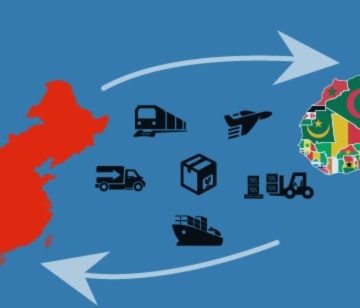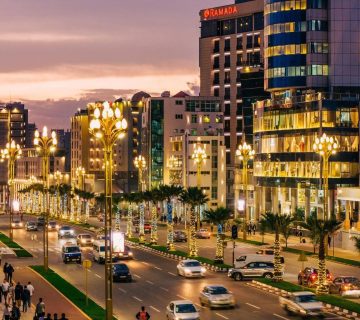Last week, Somalia’s capital city, Mogadishu was gripped by an escalation of armed conflict as political confrontation over stalled elections reached breaking point. The conflict that broke out on April 25, 2021 between security forces allied to the federal government and armed opposition supporters, is worsening the humanitarian situation in the country as thousands flee their homes and become victims of internal displacement. As of April 28, 2021 the United Nations humanitarian agency reported that between 60,000 and 100,000 had fled their homes in Mogadishu, some seeking refuge in the outskirts of the city with heightened insecurity and vulnerability. The armed violence adds to other humanitarian challenges including drought and famine, desert locust invasion and the COVID-19 that have been ravaging the country in the past year. To assuage the problems and ensure protection of lives and civilian institutions, Somalia’s politicians should act fast to de-escalate ongoing tensions and return to dialogue as the pre-condition for peace and stability in the country. International humanitarian donors working in tandem with local humanitarian actors ensure protection and delivery of humanitarian support to the vulnerable populations.
The electoral crisis and violence
For months Somalia has been facing a rapidly evolving and highly volatile electoral stalemate, in which political leaders have repeatedly failed to agree on the way forward for conducting the 2020-2021 parliamentary and presidential elections. Despite numerous attempts to unlock the stalemate, including a compromise agreement reached in September 17, 2020, that called for indirect elections, the electoral planning stalled, with major contestation surrounding the composition of the electoral committees and issues of security of the polls. The tensions escalated when the term of the incumbent president Farmaajo expired on February 8, but stayed on in office, an action that opposition politicians – the Union of Presidential Candidates and federal member states of Jubaland and Puntland – termed ‘illegal’ and unconstitutional. While tensions were steadily building in the country over the course of the last two months with intense political sparring and clan mobilization, the fighting erupted after the Lower of Parliament passed a controversial legislation to extend both its mandate and that of President Farmaajo by two years. Characterized by heavy gunfire exchange between federal government troops and troops loyal to the opposition politicians including a section of the Somali National Army (SNA), the violence spread to major parts of Mogadishu, disrupting businesses and exacerbating insecurity around the capital.
Although Somalia’s recent history has been marred by armed conflict including attacks from the Islamist insurgent group al Shabab, the ongoing politically instigated armed confrontation in which the security sector has seemingly fragmented with some soldiers reportedly retreating to clan loyalties, particularly bears serious ramifications for the country especially with regard protection of civilians and humanitarian assistance.
Dire humanitarian situation
Prior to the armed confrontations, the humanitarian situation in Somalia was already highly fragile. A situational report released by UNOCHA in March 2021, showed that about 5.9 million people were in need of humanitarian assistance, with 2.9 million rendered IDPs, thereby worsening the risk of exclusion and marginalization. The dire humanitarian situation is aggravated by recurrent climatic shocks such as droughts and floods; desert locust infestation since December 2019; COVID-19; and clan-based violence as well as armed conflict between state and non-state actors.
Given that most Somalis rely on agriculture for daily subsistence and food supply, the impact climate change aggravates humanitarian risks in the country, as disruptions on weather leads to phenomena such as drought and flooding, thereby resulting into devastating humanitarian consequences. Since January 2021, large parts of Somalia have remained in severe drought conditions, due to low rainfalls recorded between October and December 2020 and unusually hot temperatures that started in end of December 2020. This has resulted in severe water shortages both for domestic and agricultural production forcing over 116,000 people to flee their homes with the greatest impact in the regions of Lower Juba, Middle Juba, Gedo, Mudug, Bari, Nuugal, Sool, and Toghdheer. In the meantime, Somalia continues to face the impact of desert locust invasion that started in December 2019. The infestation, the worst in over 25 years, has significantly impacted stable crop production and livelihoods of hundreds of thousands of people across Somalia, further worsening food insecurity.
The COVID-19, which came on the back of other disease outbreaks such as cholera and measles, created a perfect storm for the humanitarian situation in Somalia. The pandemics’ impact on health and socioeconomic livelihoods have worsened patterns of vulnerability for many people, thereby compounding the humanitarian emergency in the country.
Responding to the Challenges
The extent of fragility in Somalia and risks that both armed conflict and worsening humanitarian crisis bear for the prospects of security and stability of the country, call for the adoption of an integrated approach in responding to the evolving crisis. Responses must focus on preventing further escalation of violence and addressing the humanitarian threats, occasioned by the recent political violence in Mogadishu. Somalia’s leaders should take action to de-escalate ongoing tensions and ensure a return to dialogue as a pre-condition for peace and stability in the country. Fundamentally, the leaders need to put the national interests of security and stability above individual and group political ambitions and seek a common pathway that secures the welfare and security of all Somalis. The international community and humanitarian donors, in conjunction with local NGOs and civil society organizations, must respond to the immediate humanitarian emergency triggered by the recent political violence as well as ensuring sustained development programme assistance to ensure stability in Somalia.
Otieno O. Joel is a Researcher at the HORN Institute
Photo: An armored personnel carrier (APC) drives on a sealed off street to prevent a protest over delayed elections in Mogadishu, Somalia, on February 19, 2021 (Photo Credit: Reuters/Feisal Omar)



